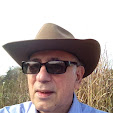
Thomas Jefferson as Secretary of State, Portrait by Charles Willson Peale, 1791
Today is the birthday of our third president, Thomas Jefferson. (April 13, 1743-July 4, 1826)
My impressions of Jefferson are many. He is best known as the author of the Declaration of Independence. Yes, he lived the life of a dilettante at times. For instance, he loved wines and while ambassador to France from 1785-1789, he had the chance to experience many French varietals. When he returned to the states, he, continued to order his favorite Bordeaux for his wine cellar at Monticello. He is reputed to have spent $7500 on wine purchases in his first term in office (the equivalent of about $125,000 in todays coin of the realm). He was America's premier wine connoisseur of his day.
The early chapters in the book explore how Polk rose to power by being President Andrew Jackson's (seventh President of the United States, 1829-1837) man in Congress rubber stamping the former's aversion to a strong central federalist government (originally championed by Alexander Hamilton founder of the Federalist Party), protective tariffs and National Bank and nullification. Jackson and Polk were of the same political philosophy as Jefferson.
This blog is my 75th and thus represents a milestone for me, since my first entry in January 2009 on National Mentoring Month. People overcoming disabling circumstances, physical, mental, environmental and spiritual, etc is a source of great inspiration to me. I blogged about how Steven Hawking, the noted physicist and author, stricken with Lou Gehrig's disease for nearly 50 years, manages to communicate orally to his audience by means of a voice synthesizer.
Fifteen months later, I have a unique opportunity to share some insights on another role
model, Thomas Jefferson. Besides being a lawyer, architect, inventor, writer and public servant, he stands out as a wonderful nation builder simply by doubling the size of our country through the Louisiana Purchase of 1803--all for a trifling 15 million dollars.
Map of the United States Showing the Louisiana Purchase of 1803 and also the
Three Annexations during the Administration of James Polk: Texas, 1845,
Mexican Cession 1848 and Oregon Territory, 1846 (Treaty with Great Britain)
There is another contrasting notion about this aristocratic squire of Monticello that intrigues me: namely the strong populist streak that formed the kernel of his political philosophy. It amazes me that this patrician figure could have such sympathy and faith in the wisdom common man.
I just stumbled upon Jefferson's populism while reading Robert Merry's A Country of Vast Designs (Simon and Schuster, New York: 2009) which is an engrossing account of the one term administration of President James Polk (1844-1848). In this short span this remarkable man was instrumental in expanding the territory of our fledgling democracy from sea to shining sea by annexing the territories comprising Texas and all lands north and west of the Lone Star State- completing the vast design of Manifest Destiny started by Jefferson. (see map above)
Mayberry relates that Jackson, along with Jefferson "distrusted any elites or concentrations of power, particularly if they were insulated from the reach and passions of the broad electorate. Power corrupts, he believed and the best protection against tyranny was to bring the masses into the process to the fullest extent possible. In this view, the people possessed a collective judgment and wisdom that would guide the nation to its destiny in a manner that would be appropriate and just... Providence, he (Jackson) said had 'pronounced . . . that the people are virtuous and capable of government.' " (page 34)
Jefferson's view of government was in direct contrast to that of Senator Henry Clay (1777-1852) of Kentucky and Representative John Quincy Adams of Massachussets (Sixth President 1825-1829 and Member of Congress from 1831-1848) who both held fast to the belief that once elected to office, officials were a brand of elites who should run the government in the manner in which they thought would represent the best interests of the people. They were anti-populist and insulated themselves against the notion that the general population could be trusted to govern themselves.
In his letter to George Logan, Jefferson foresaw the burgeoning power of British corporations to control and bend government to its will. He says: "I hope we shall take warning from the [British] example and crush it its birth the aristocracy of our monied corporations which dare already to challenge our government to a trial of strength and bid defiance to the laws of our country."



No comments:
Post a Comment